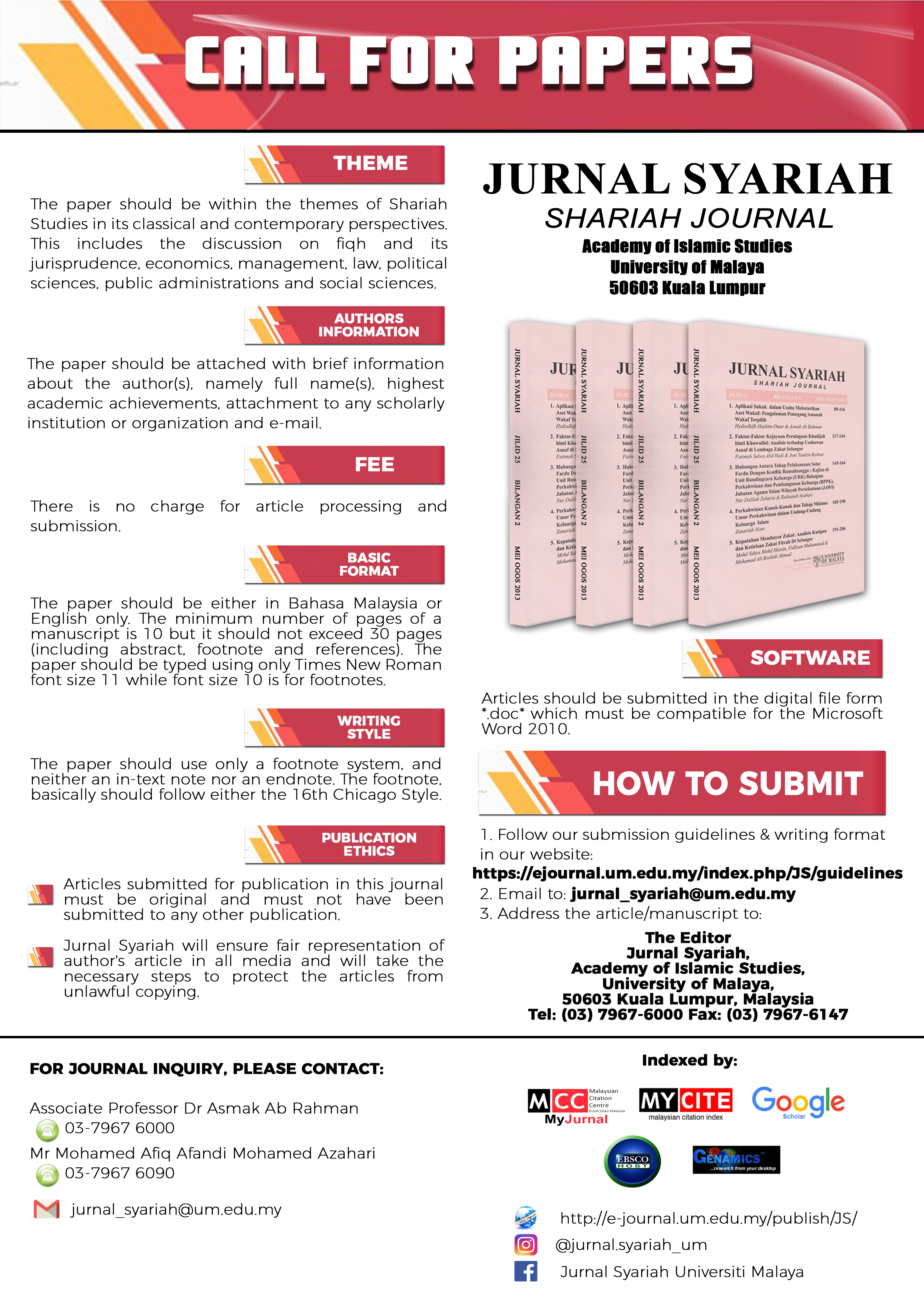WILL-MAKING (WASIYYAH) IN ISLAM: A JURISTIC EXPOSITION
DOI:
https://doi.org/10.22452/js.vol24no1.7Abstract
Islam is not averse to the acquisition of wealth and property, as it recognizes various legitimate means through which property can be amassed, such as zakāh (alms due), sadaqah (charity), hibah (gift), mirāth (inheritance), and waṣiyyah (bequest). It not only places importance on the even distribution wealth but also urges man to see wealth and property as Allah’s trust (amanah). Therefore, He (Allah) directs man on how wealth and property should be evenly distributed. However, a commonality between the concepts of waṣiyyah and mirāth is death. In other words, neither of the two could be viewed or discussed without the latter. However, Muslims the world over, especially the nominal ones, do not want to entertain this reality. This raises questions such as: What is the disposition of Muslims to the concept of willmaking? Are Muslims acquainted with the act of writing bequest? Does child favoritism have implications on will-making? Of what essence is bequest in Islam? What differentiates bequest in Islam from other forms of will-making? This paper reacts to the above questions. Thus, the onus of this paper is present an expository account on the concept of waṣiyyah with a view towards ascertaining its place in the practice of Islam on the one hand and demystify the fear that is often associated with it by the adherents of Islam on the other. The method adopted is a descriptive survey while our findings revealed that Allah’s Ordinance is supreme and divine, hence, Muslims should neither be apologetic on Allah’s instruction concerning will-making nor fail to comply with its underlying instruction.
Downloads
Downloads
Published
How to Cite
Issue
Section
License

This work is licensed under a Creative Commons Attribution-NonCommercial 4.0 International License.
COPYRIGHT: All rights reserved. Not allowed to be reproduced any part of articles and contents of this journal in any form or by any way, whether electronic, mechanical, photocopying, recording or otherwise without permission in writing from the Chief Editor, Jurnal Syariah.



















